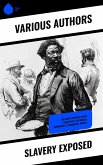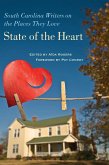For nearly forty years, Frye Gaillard has covered the American South as a journalist, historian and writer of memoir. With Music and Justice for All is a collection of Gaillard's most compelling work, one writer's odyssey though a time and place. There are stories here of the civil rights movement, a moral, social and political upheaval that changed the South in so many ways. Gaillard has captured the essence of that drama by giving it a face--telling the stories of the ordinary people, as well as the icons. In the course of these pages, the reader not only meets Dr. Martin Luther King, but also the lesser known heroes such Perry Wallace--the first African American basketball player in the Southeastern Conference and Thomas Gilmore, the first black sheriff in one of the toughest counties in the Alabama Black Belt, a man of non-violence, who refused, in deference to the fallen Dr. King, to carry a gun during the thirteen years he served as sheriff.
But Gaillard examines the South from other angles as well--the religious heritage, for example, that once led Flannery O'Connor to write about a "Christ-haunted" South. We meet Billy Graham, the greatest evangelist of his time, who admitted in the course of interviews with Gaillard that his ministry represented a "very narrow gift." There are profiles here of the Southern Baptist renegade Will Campbell and former President Jimmy Carter, whose commitment to his own understanding of Christianity has sometimes led him into controversy. Gaillard writes also about the revealing power of Southern music--how the great Johnny Cash, for example, became a force for reconciliation in America. In the final section of the book we meet some of the characters Gaillard has covered through the years, including John T. Scopes, whose final public appearance Gaillard wrote about as a young reporter in Nashville.
But Gaillard examines the South from other angles as well--the religious heritage, for example, that once led Flannery O'Connor to write about a "Christ-haunted" South. We meet Billy Graham, the greatest evangelist of his time, who admitted in the course of interviews with Gaillard that his ministry represented a "very narrow gift." There are profiles here of the Southern Baptist renegade Will Campbell and former President Jimmy Carter, whose commitment to his own understanding of Christianity has sometimes led him into controversy. Gaillard writes also about the revealing power of Southern music--how the great Johnny Cash, for example, became a force for reconciliation in America. In the final section of the book we meet some of the characters Gaillard has covered through the years, including John T. Scopes, whose final public appearance Gaillard wrote about as a young reporter in Nashville.
Dieser Download kann aus rechtlichen Gründen nur mit Rechnungsadresse in A, D ausgeliefert werden.









